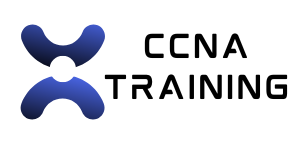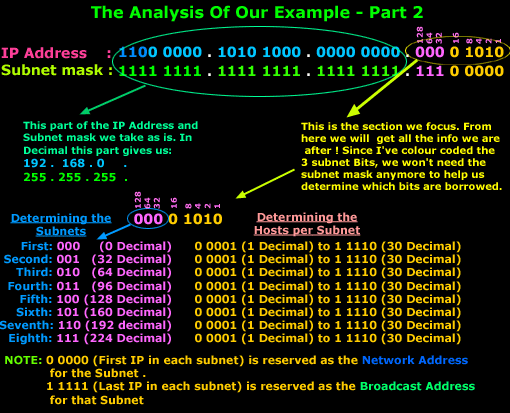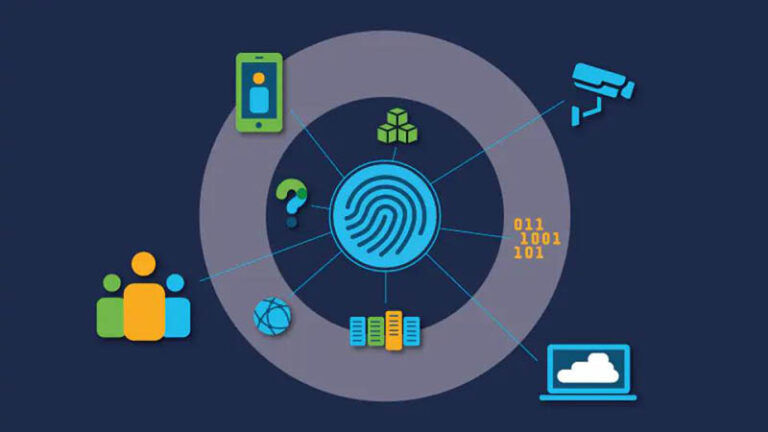The Cisco Certified Network Associate (CCNA) certification is a widely recognized credential in the field of networking. It is designed to validate the skills and knowledge of entry-level network engineers and technicians. CCNA certification covers a wide range of networking concepts, including routing and switching, WAN technologies, network security, and troubleshooting. It is an essential certification for anyone looking to start a career in networking or advance their existing networking career.
To earn the CCNA certification, candidates must pass the CCNA exam, which tests their knowledge of networking fundamentals, as well as their ability to install, configure, operate, and troubleshoot medium-sized routed and switched networks. The exam also covers topics such as IP addressing, subnetting, VLANs, ACLs, and more. CCNA certification is a great way to demonstrate your expertise in networking and increase your job prospects in the IT industry. Whether you are just starting out in the field of networking or looking to advance your career, CCNA certification is a valuable credential to have.
The CCNA certification is an important stepping stone for anyone looking to build a career in networking. It provides a solid foundation in networking concepts and technologies, and it is highly regarded by employers in the IT industry. With the increasing demand for skilled network engineers and technicians, CCNA certification can open up new opportunities and help you stand out in a competitive job market. Whether you are interested in working for a large enterprise, a small business, or a service provider, CCNA certification can help you develop the skills and knowledge needed to succeed in the field of networking.
Key Takeaways
- CCNA certification is a foundational certification for networking professionals, covering a wide range of networking concepts and technologies.
- Networking fundamentals include understanding the OSI model, TCP/IP, and Ethernet, as well as the basics of IP addressing and subnetting.
- Routing and switching are essential components of network infrastructure, involving the movement of data packets between devices and networks.
- WAN technologies, such as VPNs and MPLS, are used to connect geographically dispersed networks and enable communication over long distances.
- Securing networks with CCNA involves implementing security measures such as access control lists, firewalls, and VPNs to protect against unauthorized access and data breaches.
Exploring the Fundamentals of Networking
Networking is the practice of connecting computers and other devices to share resources and communicate with each other. It is an essential part of modern business operations, enabling organizations to access the internet, share files and printers, and communicate with customers and employees. Understanding the fundamentals of networking is crucial for anyone working in the IT industry, as it forms the basis for all communication and data transfer within an organization.
Networking fundamentals include concepts such as IP addressing, subnetting, routing, switching, and network protocols. IP addressing is used to uniquely identify devices on a network, while subnetting allows for the division of a large network into smaller subnetworks. Routing involves the process of forwarding data packets from one network to another, while switching involves the process of forwarding data within a single network. Network protocols are sets of rules that govern the communication between devices on a network, such as TCP/IP, UDP, HTTP, and more.
By mastering the fundamentals of networking, individuals can gain a solid understanding of how data is transferred between devices on a network. This knowledge is essential for anyone looking to pursue a career in networking or IT support, as it forms the basis for more advanced networking concepts such as routing and switching. With a strong foundation in networking fundamentals, individuals can build upon their skills and knowledge to pursue advanced certifications such as CCNA and beyond.
Mastering Routing and Switching
Routing and switching are two fundamental concepts in networking that are essential for the operation of modern computer networks. Routing involves the process of forwarding data packets from one network to another, while switching involves the process of forwarding data within a single network. These concepts are crucial for the efficient and reliable transfer of data within an organization’s network infrastructure.
Routing is the process by which data packets are forwarded from one network to another based on their destination IP address. Routers are devices that perform this function by maintaining routing tables and making decisions about where to forward packets. Switching, on the other hand, involves the process of forwarding data within a single network based on MAC addresses. Switches are devices that perform this function by learning MAC addresses and using them to forward data to the appropriate destination.
Mastering routing and switching is essential for anyone looking to pursue a career in networking or IT support. These concepts form the basis for more advanced networking technologies and are covered extensively in the CCNA certification exam. By gaining a deep understanding of routing and switching, individuals can build the skills and knowledge needed to design, implement, and troubleshoot complex network infrastructures.
Delving into WAN Technologies
| WAN Technology | Advantages | Disadvantages |
|---|---|---|
| DSL | Widely available, cost-effective | Speed and quality depend on distance from provider |
| Fiber Optic | High speed, reliable connection | Expensive to install, limited availability |
| Satellite | Accessible in remote areas | High latency, susceptible to weather interference |
| Wireless | Easy to set up, flexible | Interference from other devices, limited range |
Wide Area Network (WAN) technologies are essential for connecting geographically dispersed networks over long distances. WAN technologies enable organizations to connect remote offices, branch locations, and data centers to share resources and communicate with each other. Understanding WAN technologies is crucial for anyone working in the field of networking, as it forms the basis for connecting networks across large geographic areas.
WAN technologies include technologies such as leased lines, circuit-switched networks, packet-switched networks, MPLS, VPNs, and more. Leased lines are dedicated point-to-point connections that provide a constant bandwidth between two locations. Circuit-switched networks use dedicated communication channels to establish connections between two parties for the duration of a call. Packet-switched networks use shared communication channels to transmit data in packets between multiple parties. MPLS (Multiprotocol Label Switching) is a protocol-agnostic routing technique designed to speed up and shape traffic flows across wide area networks. VPNs (Virtual Private Networks) use encryption and tunneling protocols to securely connect remote users or networks over public networks such as the internet.
By delving into WAN technologies, individuals can gain a solid understanding of how networks are connected over long distances. This knowledge is essential for anyone looking to pursue a career in networking or IT support, as it forms the basis for connecting remote offices and branch locations. With a strong foundation in WAN technologies, individuals can build upon their skills and knowledge to pursue advanced certifications such as CCNA and beyond.
Securing Networks with CCNA
Network security is a critical aspect of modern networking that is essential for protecting sensitive data and ensuring the integrity of network infrastructure. Securing networks involves implementing measures to prevent unauthorized access, protect against threats such as malware and phishing attacks, and ensure the confidentiality and integrity of data. Understanding network security is crucial for anyone working in the field of networking, as it forms the basis for protecting organizations from cyber threats.
CCNA certification covers a wide range of network security concepts, including access control lists (ACLs), firewalls, VPNs, secure access management, and more. Access control lists are used to control traffic flow by filtering packets based on criteria such as source or destination IP address, protocol type, or port number. Firewalls are devices or software applications that monitor and control incoming and outgoing network traffic based on predetermined security rules. VPNs (Virtual Private Networks) use encryption and tunneling protocols to securely connect remote users or networks over public networks such as the internet. Secure access management involves implementing measures such as authentication, authorization, and accounting (AAA) to control access to network resources.
By securing networks with CCNA certification, individuals can gain a solid understanding of how to protect organizations from cyber threats. This knowledge is essential for anyone looking to pursue a career in networking or IT support, as it forms the basis for implementing security measures to safeguard sensitive data and ensure the integrity of network infrastructure.
Troubleshooting and Maintaining Networks

Troubleshooting and maintaining networks is an essential part of ensuring the reliability and performance of network infrastructure. Network technicians are responsible for identifying and resolving issues that may arise within a network, as well as performing routine maintenance tasks to keep the network running smoothly. Understanding how to troubleshoot and maintain networks is crucial for anyone working in the field of networking, as it forms the basis for ensuring the reliability and performance of network infrastructure.
CCNA certification covers a wide range of troubleshooting and maintenance concepts, including network monitoring, fault isolation, performance optimization, device management, and more. Network monitoring involves using tools and techniques to monitor network traffic and performance in real-time. Fault isolation involves identifying and resolving issues that may arise within a network, such as connectivity problems or performance issues. Performance optimization involves implementing measures to improve the speed and efficiency of network infrastructure. Device management involves configuring and maintaining network devices such as routers, switches, firewalls, and more.
By mastering troubleshooting and maintenance with CCNA certification, individuals can gain a solid understanding of how to ensure the reliability and performance of network infrastructure. This knowledge is essential for anyone looking to pursue a career in networking or IT support, as it forms the basis for identifying and resolving issues that may arise within a network.
Advancing Your Career with CCNA Certification
CCNA certification is an important credential for anyone looking to advance their career in networking or IT support. It demonstrates an individual’s expertise in networking concepts such as routing and switching, WAN technologies, network security, troubleshooting, and more. With CCNA certification, individuals can increase their job prospects in the IT industry and open up new opportunities for career advancement.
CCNA certification can lead to various job roles in the field of networking, including network engineer, network administrator, systems administrator, IT manager, and more. These roles involve designing, implementing, managing, and troubleshooting network infrastructure within an organization. With CCNA certification, individuals can demonstrate their skills and knowledge in these areas and increase their chances of landing a job in these roles.
In addition to increasing job prospects, CCNA certification can also lead to higher earning potential in the IT industry. According to PayScale, the average salary for CCNA-certified professionals ranges from $44k to $117k per year, depending on factors such as job role, experience level, and location. With CCNA certification, individuals can position themselves for higher-paying job opportunities in the field of networking.
Overall, advancing your career with CCNA certification can lead to increased job prospects, higher earning potential, and new opportunities for career advancement in the IT industry. Whether you are just starting out in the field of networking or looking to take your career to the next level, CCNA certification is a valuable credential to have.
By obtaining CCNA certification, individuals can demonstrate their expertise in networking and gain the skills and knowledge needed to excel in their careers. This certification can open doors to a wide range of job opportunities, including network administrator, network engineer, and IT manager positions. Additionally, CCNA certification can provide professionals with the confidence and credibility to pursue more challenging and rewarding roles within the IT industry. With the constantly evolving nature of technology, having a CCNA certification can also help individuals stay competitive and relevant in the field of networking. Overall, investing in CCNA certification can be a strategic move for anyone looking to advance their career in the IT industry.
FAQs
What is CCNA?
CCNA stands for Cisco Certified Network Associate. It is a certification program offered by Cisco Systems that validates the ability to install, configure, operate, and troubleshoot medium-size routed and switched networks.
Why should I learn CCNA?
Learning CCNA can provide you with the knowledge and skills needed to work with Cisco networking technologies, which are widely used in the industry. It can also enhance your career prospects and open up opportunities for higher-paying jobs in the field of networking.
What are the prerequisites for learning CCNA?
There are no formal prerequisites for taking the CCNA exam, but it is recommended that candidates have a good understanding of networking fundamentals and basic IP addressing.
How can I prepare for the CCNA exam?
You can prepare for the CCNA exam by taking a formal training course from a Cisco Learning Partner, studying the official Cisco CCNA certification guides, and practicing with hands-on labs and simulations.
What topics are covered in the CCNA exam?
The CCNA exam covers a wide range of topics including network fundamentals, network access, IP connectivity, IP services, security fundamentals, and automation and programmability.
How long is the CCNA certification valid for?
The CCNA certification is valid for three years. After that, you will need to recertify by passing the current CCNA exam or a higher-level Cisco certification exam.















